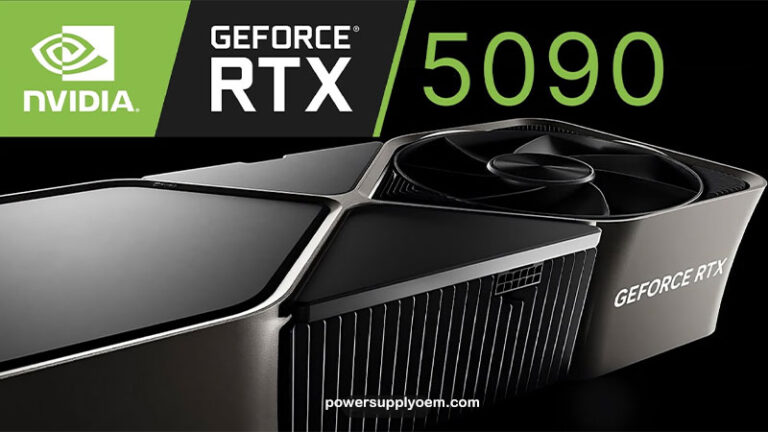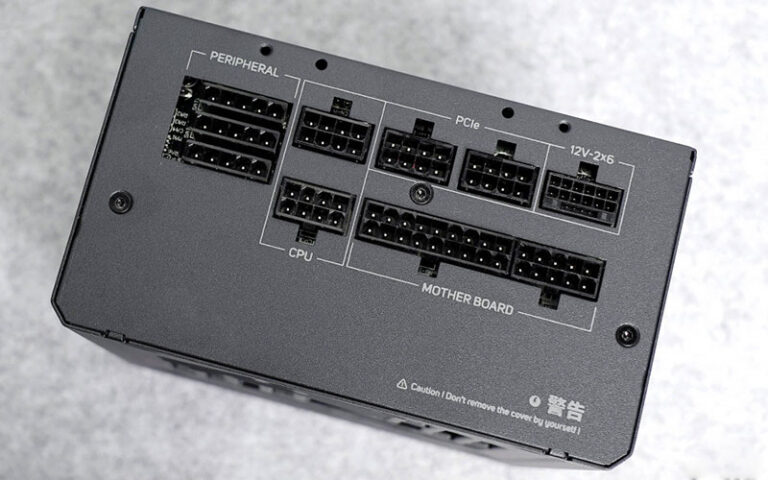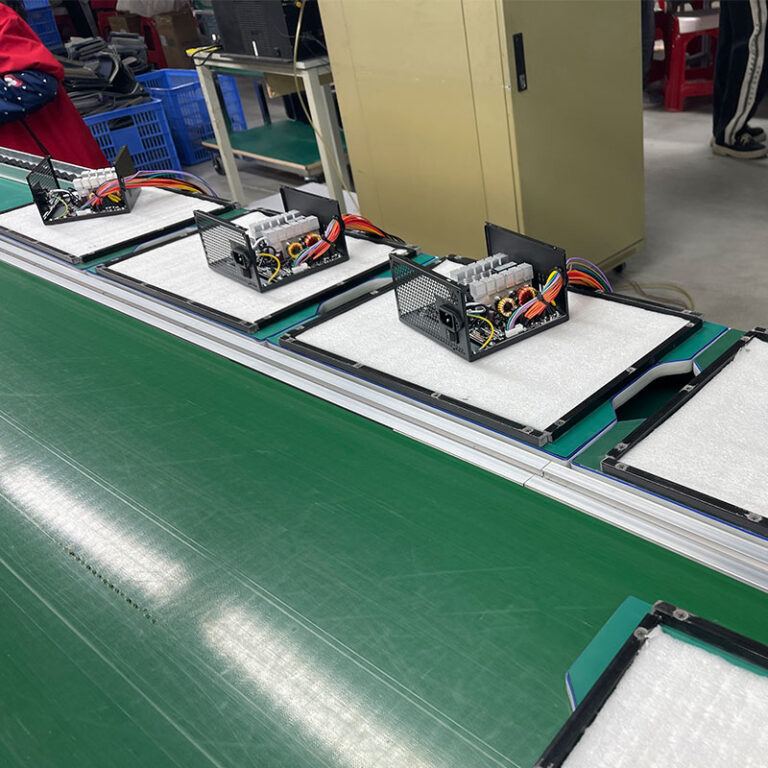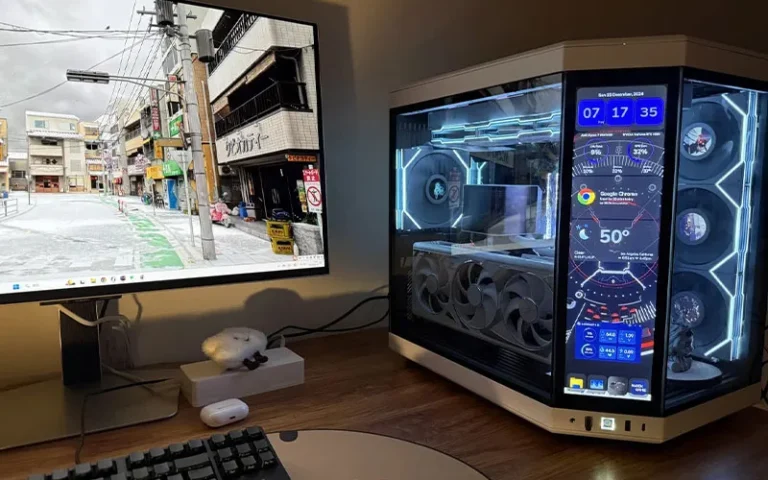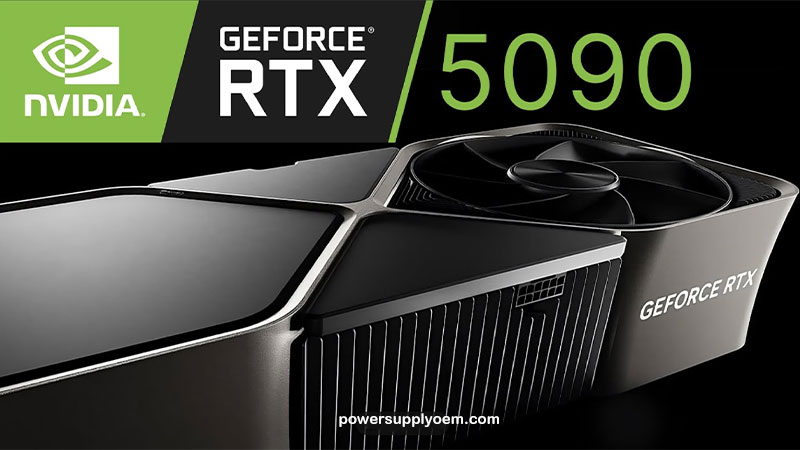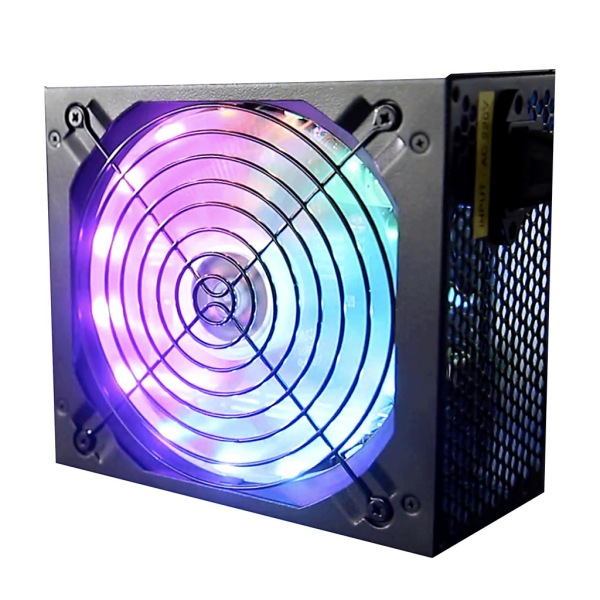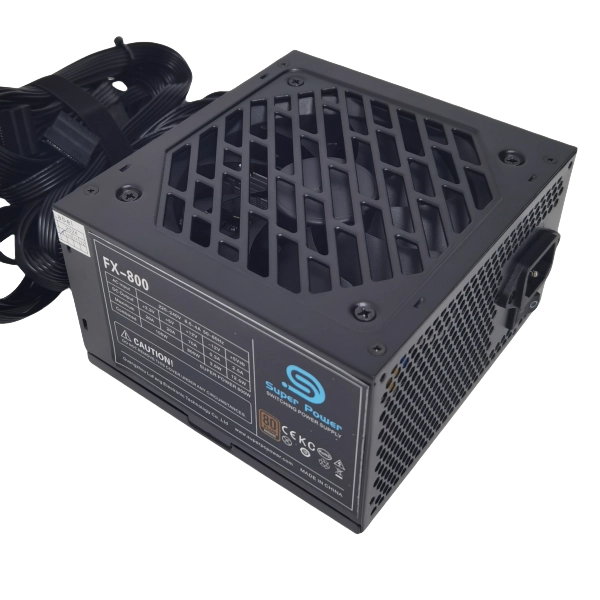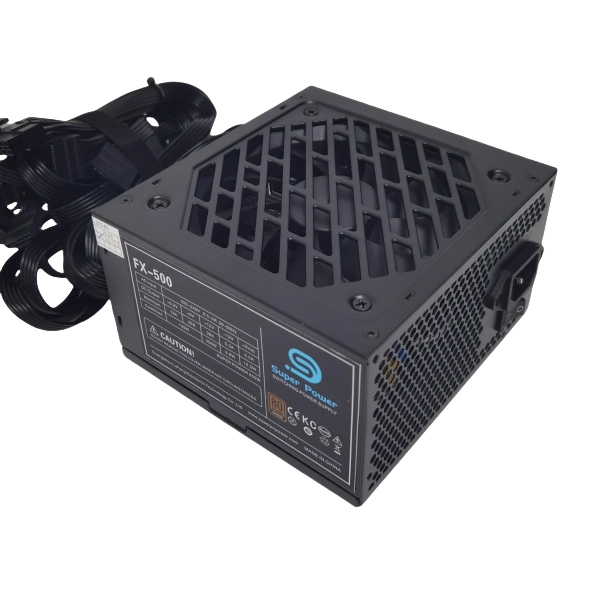-
Building E, No. 65 Xingshan North Road, Liangtian, Baisha Industrial Park, Baiyun District, Guangzhou
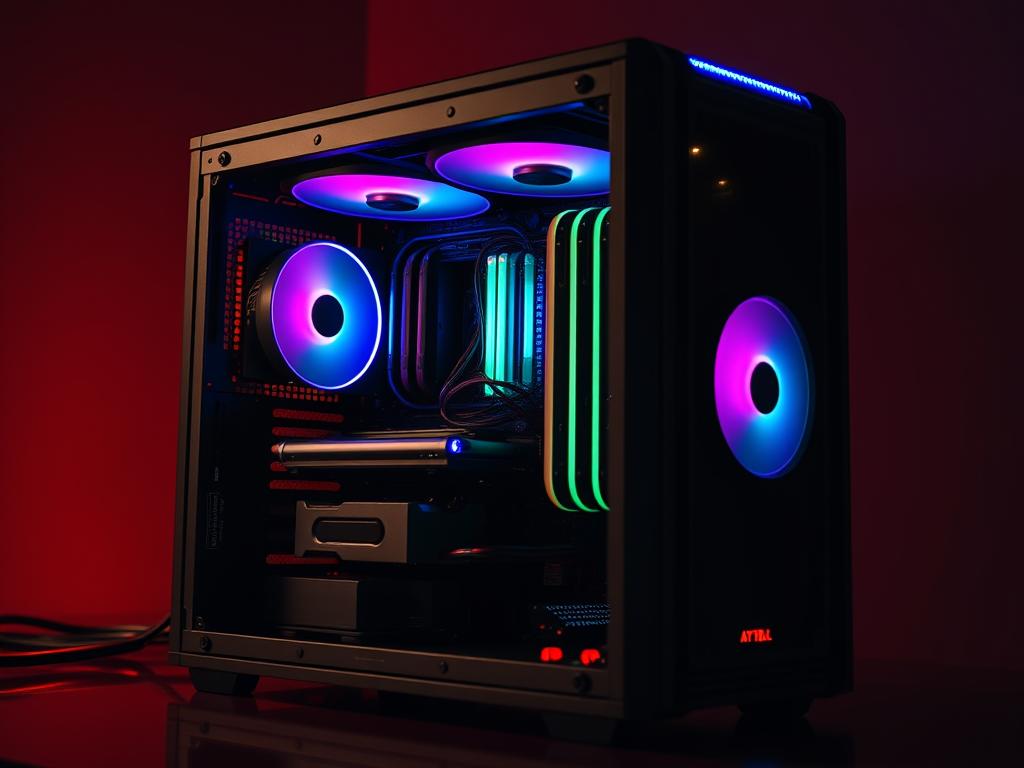
How To Tell If Pc Power Supply Unit Is Failing?
Top 10 Signs of Power Supply Failure: How to Diagnose a Failing PSU
A failing power supply can wreak havoc on your systems, leading to a range of issues from unexpected shutdowns to hardware damage. As a leading PC power supply manufacturer, we understand the critical role a reliable power supply unit plays in maintaining system stability, especially for power supply brands, gaming clubs, large internet cafes, and 3C supermarkets. Recognizing the signs of power supply failure is crucial for preventing downtime and ensuring the longevity of your equipment. Our power supplies are designed to deliver consistent and clean power, incorporating advanced features to minimize the risk of failure. When you choose our products, you’re investing in reliability and performance, backed by rigorous testing and quality control. We offer a variety of models, including ATX Power Supply, FLEX Power Supply, SFX Power Supply, and TFX Power Supply, to meet diverse needs. Our atx 80 plus gold 850w power supply is a popular choice for high-performance systems, ensuring stability even under heavy load. Partnering with us means access to expert support and high-quality power solutions that keep your systems running smoothly. Let’s delve into how to tell if your power supply is failing and the steps to diagnose the issue.
Table of Contents
Symptoms of a Bad Power Supply Unit
One of the most common symptoms of a bad power supply unit is unexpected system shutdowns or restarts. If your PC suddenly turns off without warning, especially during resource-intensive tasks, the power supply may be unable to deliver sufficient or stable power. This can be particularly problematic for gaming clubs and internet cafes, where consistent performance is essential. Another clear sign is the dreaded blue screen of death (BSOD). While BSOD errors can stem from various issues, a faulty power supply should be considered a potential culprit, mainly if they occur randomly.
<img src=”https://i.postimg.cc/Y9s7cWdF/2.jpg” alt=”ATX Power Supply” style=”float: left; margin-right: 10px;”>
Furthermore, frequent system crash or freezing can point to a bad power supply. When the PSU cannot provide stable voltage to components like the CPU and GPU, the system may become unstable and crash. If you’re experiencing these issues, it is time to test a PSU. You may need to replace your current power supply with a more reliable one.
As a manufacturer, we ensure our power supplies undergo rigorous testing to prevent such issues, guaranteeing a lower failure rate and enhanced longevity. For example, our ATX models are designed to handle fluctuating power demands efficiently, reducing the risk of unexpected shutdowns. The use of high-quality components in the manufacture of power supplies is essential to prevent power supply failure.
Recognizing Signs of Power Supply Failure
Apart from sudden shutdowns and crashes, there are other signs of power supply failure that you should be aware of. A burning smell coming from your PC is a serious indicator of a problem. This smell often suggests that components inside the power supply are overheating, which could lead to catastrophic failure or even fire. In such cases, immediately shut down the system and disconnect the power cable to prevent further damage or electric shock.
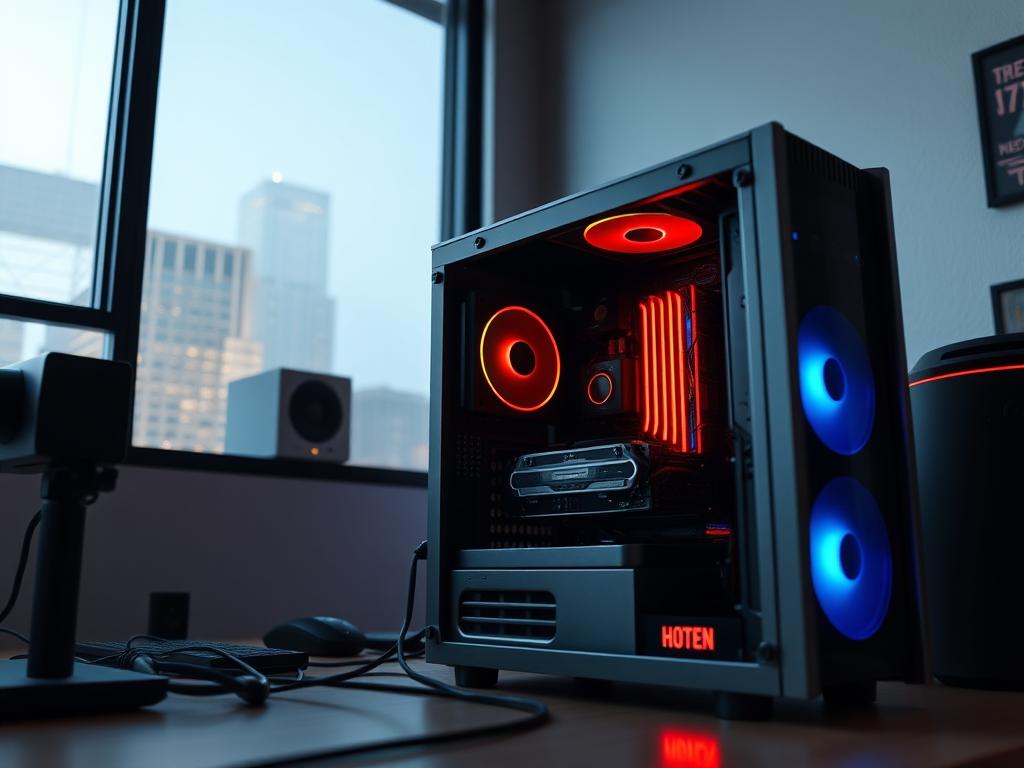
Strange noises, such as clicking, buzzing, or whining, coming from the power supply can also indicate that it may be failing. These noises could be caused by a malfunctioning fan, a failing capacitor, or other internal components failing. While some PSUs may produce slight noise under normal operation, any unusual or loud sounds should be investigated. In addition, if your PC fails to boot or if you experience issues with peripherals not functioning properly, the power supply could be the source of the issue.
- Unexpected shutdowns or restarts
- Blue screen of death (BSOD)
- Frequent system crashes or freezes
- Burning smell
- Strange noises (clicking, buzzing, whining)
- PC fails to boot
- Peripheral malfunctions
- Random flicker on the screen
How to Test a PSU and Diagnose Issues
If you suspect the PSU is failing, there are several ways to test a PSU and diagnose the problem. One basic method is to use a PSU tester, a simple device that checks whether the power supply is delivering the correct voltage levels. A PSU tester can quickly identify issues such as low or fluctuating voltage, which can confirm that the power supply is at fault. Ensure the tester you choose is compatible with your power supply type, e.g. ATX.
| Method | Description | Pros | Cons |
| PSU Tester | A device that connects to the PSU connectors and displays voltage readings. | Quick and easy to use; provides immediate voltage information. | May not detect issues under load; requires a specialized (though inexpensive) device. |
| Multimeter | A versatile tool that can measure voltage, current, and resistance. Requires connecting probes to the PSU connectors. | Accurate; can measure voltage under load. | Requires some technical knowledge; can be risky if not done correctly. |
| Paperclip Test | A basic test that involves shorting two pins on the motherboard connector to see if the PSU fan spins. | Simple and requires no special tools. | Only indicates if the PSU can turn on; does not provide voltage readings. |
| Software Tools | Programs like HWMonitor can display voltage readings from sensors on the motherboard. | No additional hardware needed. | Readings may not be accurate; does not directly test the PSU. |
| Swap with Known Good PSU | Replacing the suspect PSU with a known good one to see if the system functions properly. | Definitive way to determine if the PSU is the problem. | Requires having a spare, compatible PSU. |
For a more advanced troubleshooting approach, you can use a multimeter to check the voltage output of each connector on the power supply. This method requires some technical knowledge, but it provides detailed information about the PSU’s performance. You should compare the readings with the power supply voltage specifications, typically found on the label of the power supply unit. You can also use software tools such as HWMonitor to check voltage readings.

“There’s very little that our techs haven’t seen regarding power supply issues. If you’re experiencing any of the signs of a failing power supply, don’t hesitate to reach out to our expert team for guidance.”
Choosing our power supplies means you benefit from our expertise and commitment to quality. Our products, including PC POWER SUPPLY solutions, are designed to provide stable and efficient power, minimizing the risk of power supply failure. We also offer specialized solutions like the atx 80 plus gold 850w power supply for high-demand systems, ensuring your gaming club or internet cafe runs smoothly. Trust in our experience and dedication to deliver power solutions that meet your needs and exceed your expectations.
What are the most common signs that a PC power supply is failing?
The most common indicators include unexpected shutdowns or restarts, frequent crashes or freezes, the blue screen of death (BSOD), a burning smell, strange noises (clicking, buzzing, whining), the PC failing to boot, and peripherals malfunctioning. As a power supply OEM, we design our units to minimize these issues, but recognizing these signs is crucial for any PC user, system builder, or power supply brand.
My PC keeps shutting down randomly. Could it be the power supply?
Yes, random shutdowns are a classic sign of a failing power supply. It suggests the PSU is unable to consistently deliver the required power, especially under heavy load. Our expertise as a power supply OEM allows us to engineer power supplies that provide stable power even during demanding tasks, which is vital for environments like gaming clubs and internet cafes.
I smell a burning odor coming from my PC. What should I do?
A burning smell is a serious warning sign. Immediately shut down the PC, unplug the power cable, and do not attempt to turn it back on. This odor often indicates overheating components within the power supply, potentially leading to further damage or even fire. As a responsible power supply OEM, we emphasize rigorous thermal testing to prevent such issues. If you have a burning smell problem, you can choose to believe us, and you can buy PC POWER SUPPLY.
Can strange noises from my PC indicate a power supply problem?
Absolutely. Unusual noises like clicking, buzzing, or whining can indicate a failing power supply fan, a bad capacitor, or other internal component issues. While some operational noise is normal, loud or irregular sounds should be investigated. We, as a power supply OEM, meticulously select and test components to ensure quiet and reliable operation.
How can I test my PC’s power supply to see if it’s working properly?
You can use a dedicated PSU tester for a quick check or a multimeter for more detailed voltage readings. Software tools can also provide some insights. However, as a power supply OEM factory, we recommend that the most reliable method is to swap the suspect PSU with a known good one. If the system works fine with the new PSU, the original one is likely the culprit. We also have atx 80 plus gold 850w power supply for you to choose from.
What’s the difference between ATX, SFX, and TFX power supplies, and does it matter for diagnosing issues?
ATX, SFX, and TFX refer to different power supply form factors. While the form factor itself doesn’t directly relate to diagnosing failure, it’s crucial to choose the right one for your system’s compatibility. As a power supply OEM, we manufacture a wide range of form factors, including ATX Power Supply, SFX Power Supply, and TFX Power Supply, to meet diverse build needs, and FLEX Power Supply.
My PC won’t boot at all. Is it definitely the power supply?
While a PC failing to boot can be caused by various issues, the power supply is a primary suspect. It’s responsible for delivering power to all components, so if it’s completely dead, the system won’t start. As a power supply OEM, we understand the importance of a reliable boot sequence, and our power supplies are designed to ensure a smooth startup every time.
Can a failing power supply damage other components in my PC?
Unfortunately, yes. A failing power supply can deliver unstable or incorrect voltage to other components, potentially causing damage over time. This is why, as a power supply OEM, we emphasize the importance of using high-quality power supplies with built-in protections to prevent damage from power surges, overvoltage, and short circuit.
How long do PC power supplies typically last?
The lifespan of a power supply depends on various factors, including its quality, usage patterns, and operating environment. Generally, a good quality PSU can last 5-10 years or even longer. As a power supply OEM, we design and build our power supplies for longevity, using durable components and rigorous testing procedures.
Where can I find reliable information and support for power supply-related issues?
For reliable information and expert advice, you can always turn to us, your trusted power supply OEM. Our website provides detailed product specifications, troubleshooting guides, and a dedicated support team to assist you with any questions or concerns. You can contact us through the contact us page on our website.
Summary of Product Advantages:

Our power supplies ensure reliability and stability, crucial for demanding environments like gaming clubs and 3C supermarkets. With advanced features, rigorous testing, and diverse options, we provide the ultimate power solutions. Trust us to prevent downtime and boost performance.

